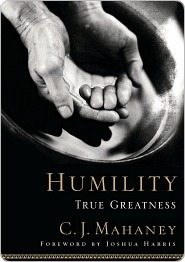More on this book
Community
Kindle Notes & Highlights
few things seem to separate me from Jesus more sharply than His utter humility and my repeated lack of it.
Humility draws the gaze of our Sovereign God.
us: Humility is honestly assessing ourselves in light of God’s holiness and our sinfulness.
The sad fact is that none of us are immune to the logic-defying, blinding effects of pride.
The real issue here is not if pride exists in your heart; it’s where pride exists and how pride is being expressed in your life.
“Pride,” John Stott writes, “is more than the first of the seven deadly sins; it is itself the essence of all sin.”
Pride is when sinful human beings aspire to the status and position of God and refuse to acknowledge their dependence upon Him.
Show me a church where there’s division, where there’s quarreling, and I’ll show you a church where there’s pride.
throughout His Word, God exposes pride as our greatest enemy.
As sinfully and culturally defined, pursuing greatness looks like this: Individuals motivated by self-interest, self-indulgence, and a false sense of self-sufficiency pursue selfish ambition for the purpose of self-glorification.
Contrast that with the pursuit of true greatness as biblically defined: Serving others for the glory of God. This is the genuine expression of humility; this is true greatness as the Savior defined it.
To learn true humility, we need more than a redefinition of greatness; we need even more than Jesus’ personal example of humble service. What we need is His death.
Ultimately our Christian service exists only to draw attention to this source—to our crucified and risen Lord who gave Himself as a ransom for us all.
We cannot free ourselves from pride and selfish ambition; a divine rescue is absolutely necessary.
If there’s ever to be meaningful transformation in our lives, if we are to make progress in restraining pride and manifesting humility, there must be the purposeful application of truth—an effort and pursuit on our part that God will use for sanctifying transformation in our lives.
Reflect on the wonder of the cross of Christ.
Begin your day by acknowledging your dependence upon God and your need for God.
Martyn Lloyd-Jones asked, “Have you realized that most of your unhappiness in life is due to the fact that you are listening to yourself instead of talking to yourself?”
Begin your day expressing gratefulness to God.
Practice the spiritual disciplines—prayer, study of God’s Word, worship.
Seize your commute time to memorize and meditate on Scripture.
Cast your cares upon Him.
I should also recognize that all the cares coming my way are actually provided by God specifically for the purpose of cultivating humility in my life.
Whatever successes you experience in your life and ministry and vocation, learn to immediately transfer the glory to Him.
Receive the gift of sleep from God and acknowledge His purpose for sleep.
Each night, as I confront my need again for sleep, I’m reminded that I’m a dependent creature. I am not self-sufficient. I am not the Creator. There is only One who “will neither slumber nor sleep” (Psalm 121:4), and I am not that One.
Study the attributes of God.
Study the doctrines of grace.
Study the doctrine of sin.
a poor and happy man laughs heartily because he gives no serious attention to his ego.
Identify evidences of grace in others. This means actively looking for ways that God is at work in the lives of other people.
Our deliberate pursuit of obedience and growth in godliness isn’t something we enter into with self-confidence, but as an expression of humble dependence upon the God who is actively working.
it’s amazing how often believers are unaware of the specific progress they’re making—even progress that is obvious to everyone else.
Encourage others each and every day—
Truly edifying words are words that reveal the character and the promises and the activity of God. They’re cross-centered words. They’re words rooted in and derived from Scripture, words that identify the active presence of God, and words that communicate the evidences of grace that you observe in others.
Any conversation including correction must also include the gospel, because biblical correction is incomplete apart from the gospel.
Only the humble are genuinely concerned about edifying and encouraging others.
No matter how extensive one’s scriptural knowledge, or how amazing one’s memory, it is self-deception if that is all there is. True knowledge is the prelude to action, and it is the obedience to the Word that counts in the end.
Only our grace-motivated obedience and application of holy Scripture can produce growth in godliness.
There is no duty we perform for God that sin does not oppose. And the more spirituality or holiness there is in what we do, the greater is its enmity to it. Thus, those who seek the most for God experience the strongest opposition.
Respond humbly to trials.
At some point in your life, you will know circumstances that seem to contradict the character and promises of God, if you haven’t already. At some moment in your future, life will not make sense.
three prominent marks of anyone who’s truly humble before God. Such a person is (1) prayerful before God, (2) waiting on God, and (3) rejoicing in God.
Regardless of the severity of suffering we experience in this life, it will always be less than what we have deserved for our sins.
“In the darkest night of our soul, we have something to hold on to that Job never knew. We know Christ crucified. Christians have learned that when there seems to be no other evidence of God’s love, they cannot escape the cross.”


